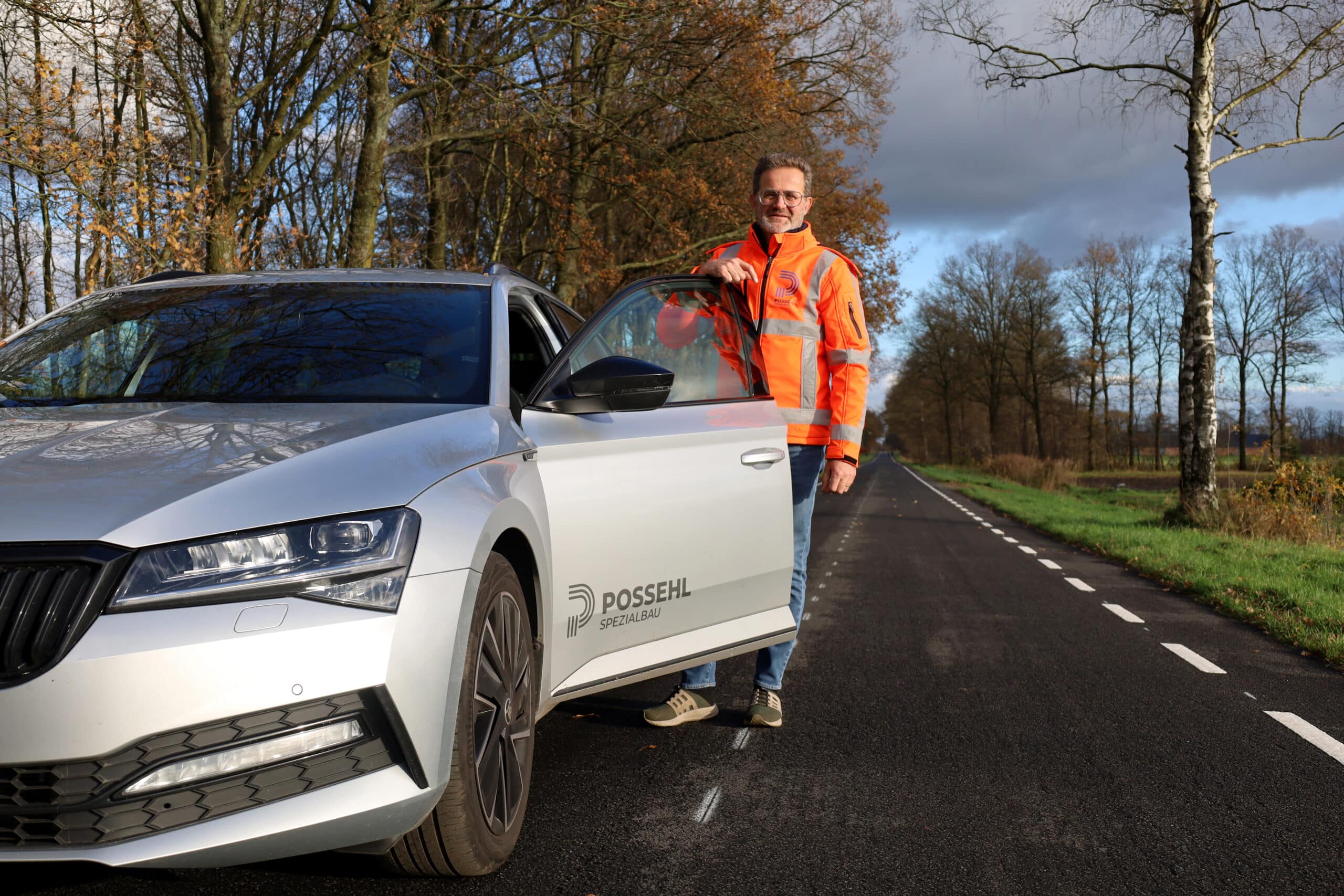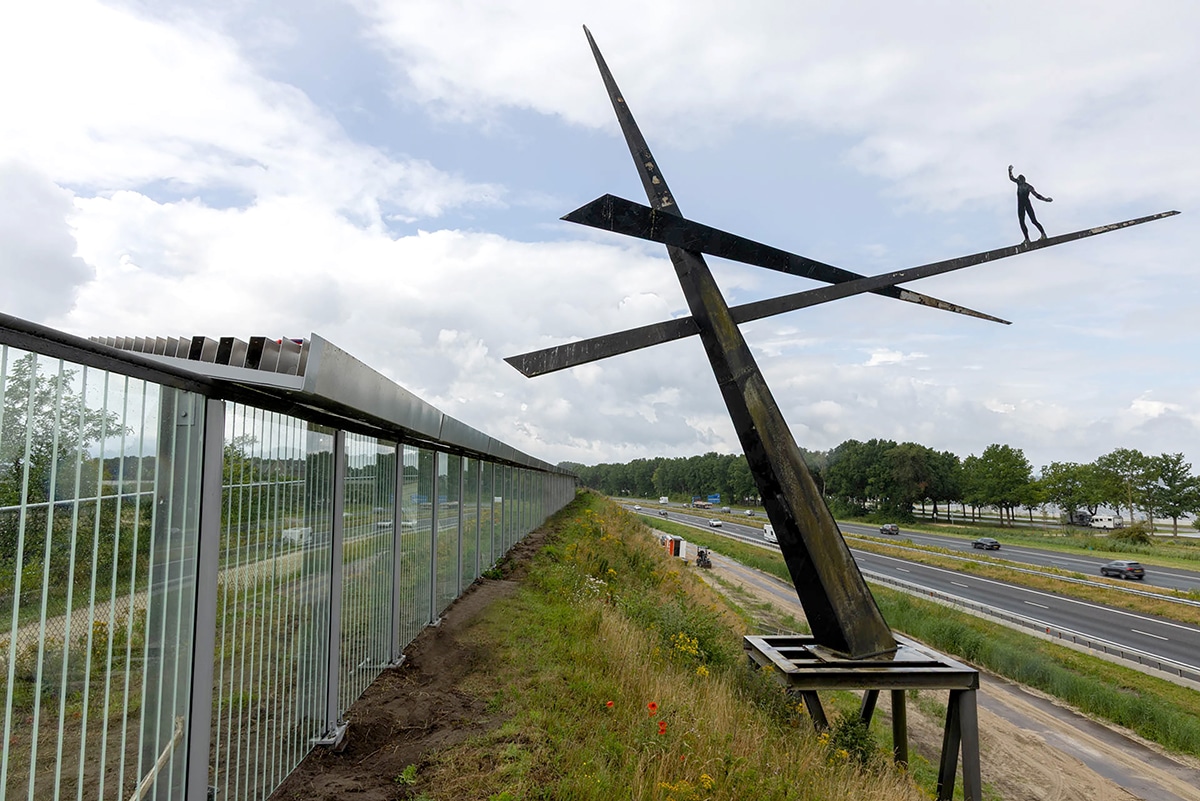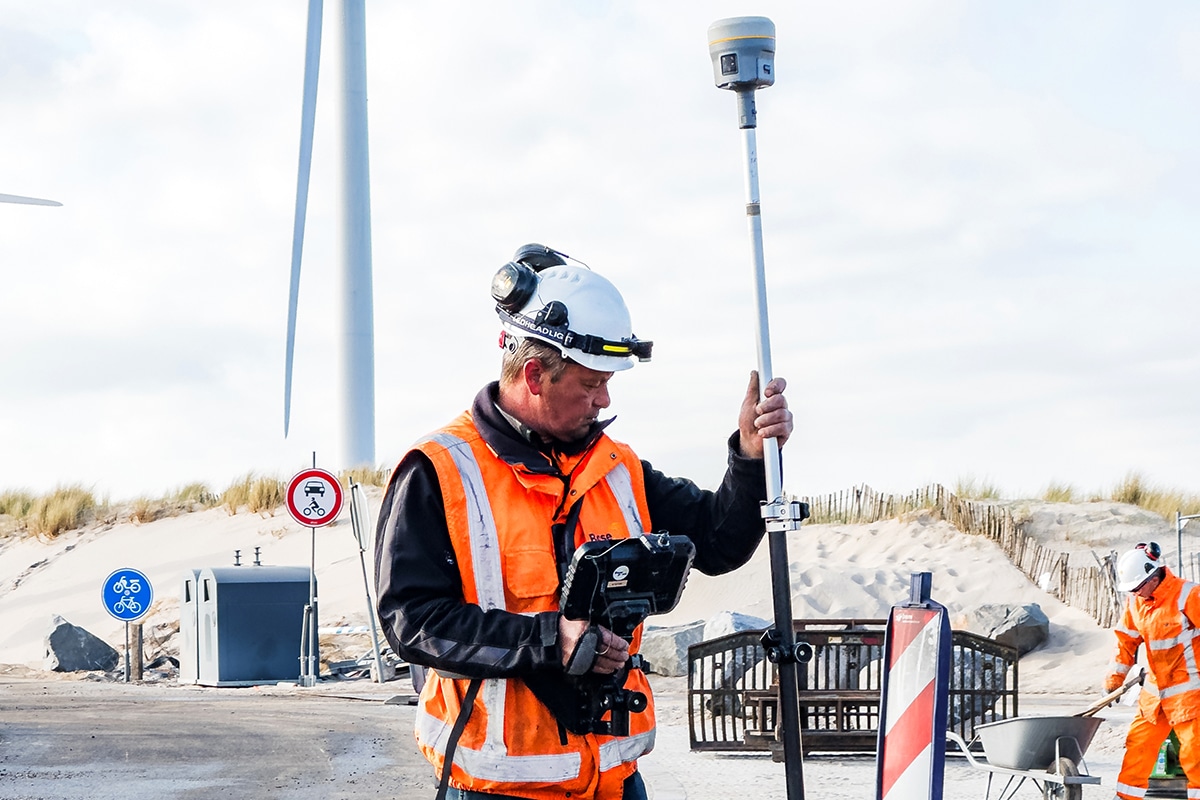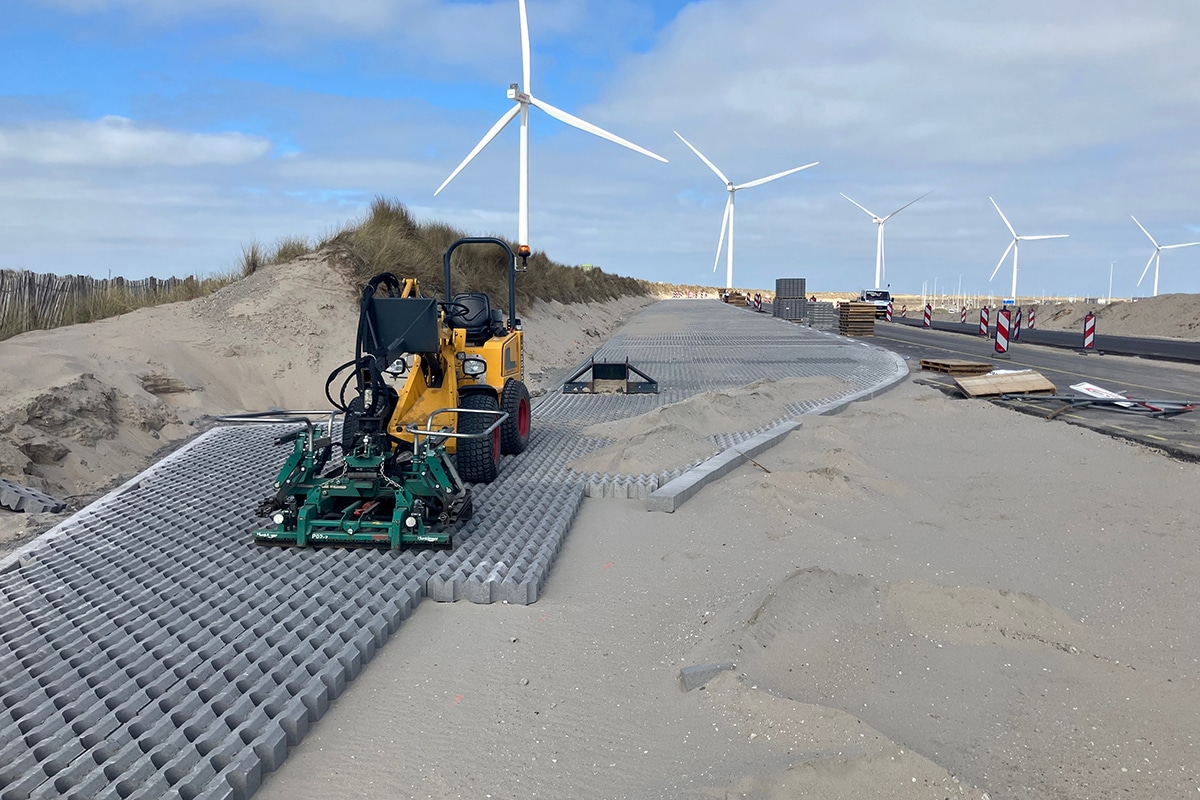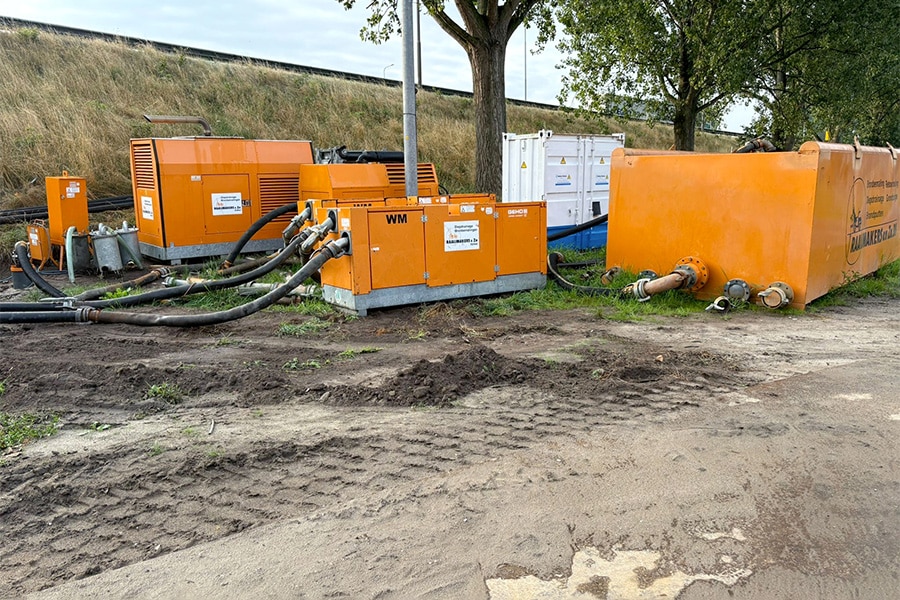
Pumping for the 100 hours of Hooipolder
Brief, but effective
Although the 100 Hours of Hooipolder was a mega-operation, for Raaijmakers en Zn. Bronbemaling at the time, it was actually not that exciting at all. They had the work done beforehand. It contributed to the success of the insertion operation, because thanks to their four deep wells, the sand package under the A27 was up to 2.5 meters below
the ground level "bone dry.
We were approached by construction consortium ALSÉÉN in the spring of 2024 to provide drainage at both the pre-construction site and later on the A27 in preparation for the 100 Hours of Hooipolder, says William Raaijmakers of Raaijmakers en Zn. Bronbemaling, an operating company of Van Tongeren Watertechniek - Bronbemaling.com. "Ground improvement had to be applied at the pre-construction site to prevent the colossal structure from sinking onto the existing loam layer." In collaboration with the 'slot team' and ALSÉÉN's geohydrologists, the drainage was designed. "This consisted of a traditional filter pumping system with vacuum filters set up in a center-to-center distance of 2 meters and 8 meters deep. Combined with four drainage pumps, the groundwater level was temporarily lowered by 1.5 meters. The soil was then excavated to 2.5 meters below ground level and filled with clean sand. The drainage was then dismantled and the construction crew was able to start construction of the underpass, which did not require any further drainage."
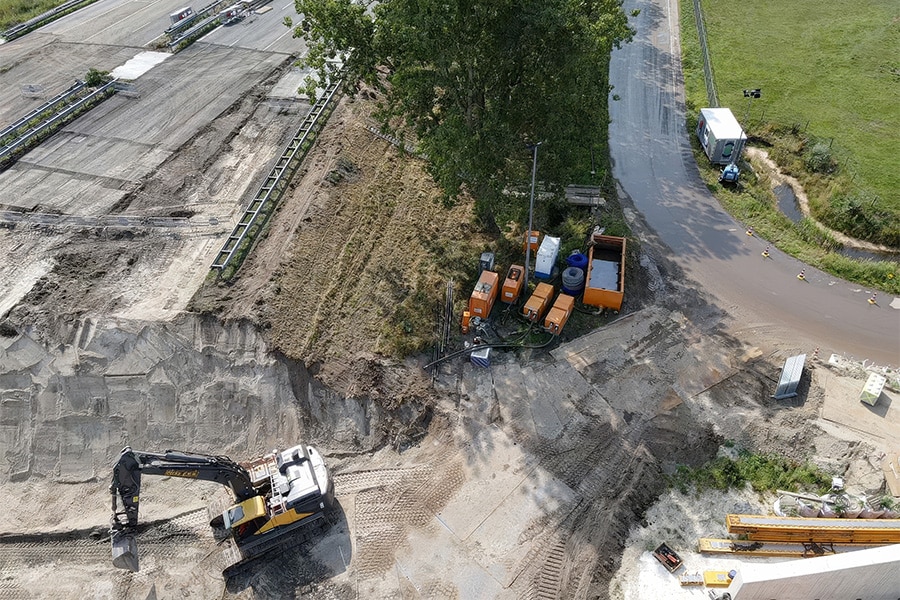
Deepwell Resources
In the run-up to the 100 Hours of Hooipolder, Raaijmakers en Zn. Bronbemaling was again able to assert its expertise. "Ground improvement also had to be applied under the A27 as a foundation for the future underpass," explains Raaijmakers. "It was up to us to make sure, before the start of the mega job, that the sand package of the work site, so also under the A27, would be dry to a depth of 2.5 meters. To this end, we drilled four partial wells up to 15 meters deep in advance, set up at the corners just outside the work site. They were about 100 meters apart on the long side and about 40 meters apart on the short side. The goal was to lower groundwater over an area the size of a soccer field by more than 1.5 meters to 2.5 meters below ground level. The wells had a capacity of 65 m3 per hour, which made it possible for us to extract a total of 260 m3 per hour."
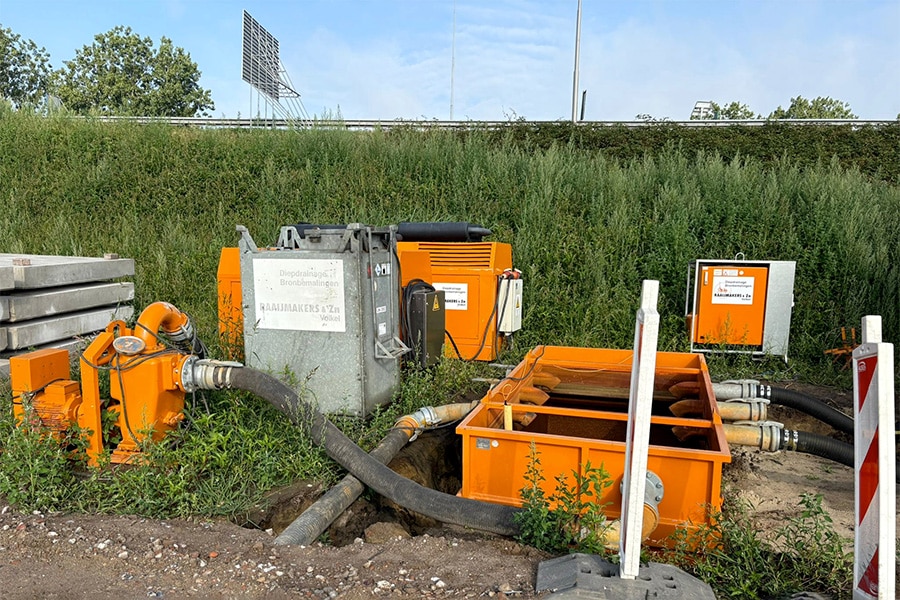
Straw containers
About five weeks prior to the insertion operation, Raaijmakers en Zn. Bronbemaling performed a pumping test in cooperation with the construction consortium. "The aim was mainly to check whether what we had jointly devised could be realized. Within 24 hours we had already achieved the desired reduction," Raaijmakers points out. Nevertheless, it was decided to start pumping five days prior to the 100 Hours of Hooipolder. That way, the soil package could already dry out to speed up the earth moving process. "The drainage ran for about eight days and was stopped the moment the underpass was in place and completed. The water that was extracted was discharged to the surface water through about four straw containers. In doing so, we managed to reduce the iron content from 10 mg/l to less than 1 mg/l."
Because the deep-well wells were located just outside the work site and all the equipment was also set up outside of it, the construction crew did not experience any disruption during the slide-in operation. "So for us, the 100 Hours of Hooipolder was not that exciting. That is sometimes different with other projects," says Raaijmakers, who looks back with pride on another successful grouting project. Brief, but effective.
Heeft u vragen over dit artikel, project of product?
Neem dan rechtstreeks contact op met Henk van Tongeren Water & Engineering.
 Contact opnemen
Contact opnemen
